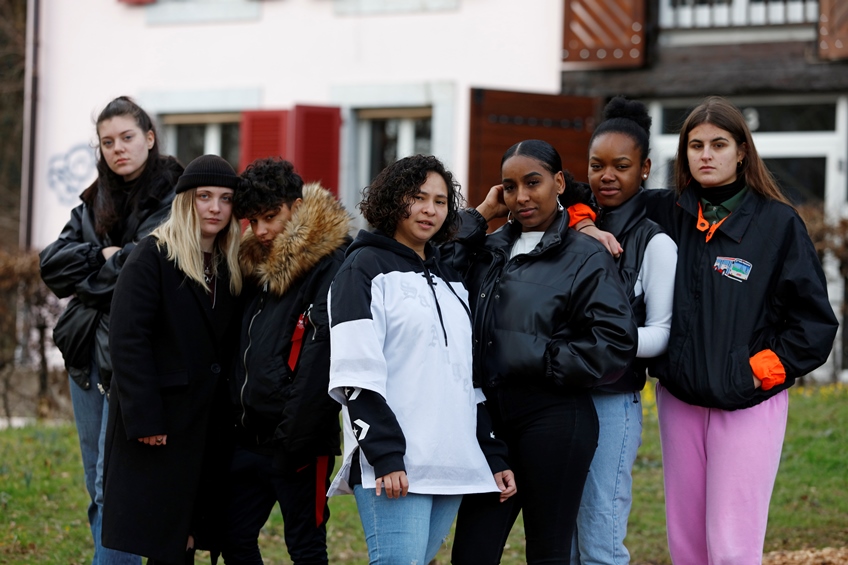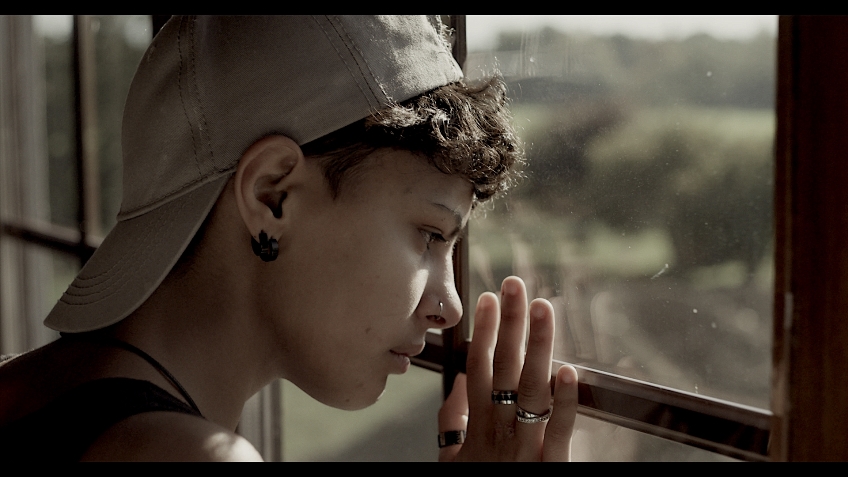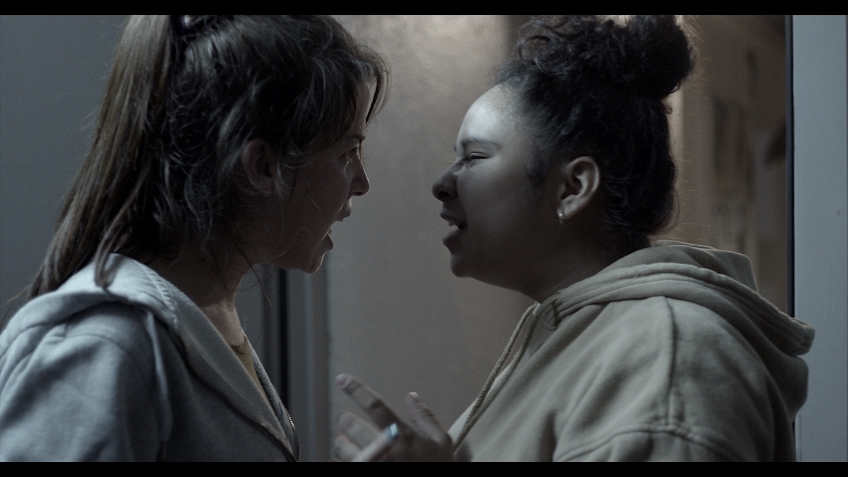Joyce Glasser reviews La MIF (February 25, 2022) Cert 15, 112 mins.
French director Laurent Cantet’s 2006 film, The Class, is a kind of faux-documentary in which the teenage students are non-professional actors, although the semi-improvised dialogue is based on real people and situations, and the teacher, whose story this is, plays himself. The film follows the challenges of teaching a class disrupted by problem students in a deprived area of Paris.
Fred Baillif’s La MIF is a Swiss (French language) film in the tradition of The Class in that it blurs the line between non-fiction and fiction to such an extent that – for the first part of the film – you think you are watching a documentary. And you would be almost correct. Baillif shot the film over a two-year period in a real residential home in Geneva for disadvantaged girls, using the actual residents and staff of the home as his actors, and largely improvised dialogue.
You might not want to be the lawyer on this film, dealing with rights and privacy issues of filming a group of vulnerable, underaged girls, but the film won prizes at international festivals and is now released in the UK. While you’ve met some of these troubled girls and their parents before and might not gain new insights into the causes and solutions of their problems, the acting is terrific, and the camera’s unabashed intrusiveness makes uncomfortable voyeurs of us all.

The film opens on a scandal after Audrey (Anaïs Uldry), who is sixteen, is caught having sex with a fourteen-year-old boy and arrested. The damage to the home’s reputation becomes paramount and a blame game ensues. The authorities decide that the school, which had been co-ed, will be all girls, although the age range is extended. The final scene in the film hits hard with the implications of that decision which we had nearly forgotten.
The all-girls rule does not prevent Alison (Amélie Tonsi) and Caroline (Amandine Golay) from forming a couple, running away overnight, getting drunk, and robbing a homeless man. What is worrisome, but receives no discussion, is their lack of empathy. Are they already too old to learn empathy? Can it be taught?
Novinha (Kassia Da Costa) is bragging about all the older men she has had sex with before being involved in an altercation where intervention is necessary. Is this a deep-rooted problem or is her inability to control her emotions a result of the news that she is to spend a trial weekend at her home. After we witness her mother’s cold indifference at her daughter’s visit, we can speculate.
On the other hand, Justine’s (Charley Areddy) responsible, middle-class parents are in tears and plead with Justine to return home. Justine is reluctant, because home triggers memories of a horrific event – which was not the fault of Justine’s parents.
Then Précieuse (Joyce Esther Ndayisenga) arrives on an Emergency Protection Order with a history of parental abuse by her father, while her mother has a breakdown and is sectioned. When Précieuse’s mother comes to take her home, the head social worker, Lora (Claudia Grob), the home’s beleaguered manager, handles the situation well. But is Précieuse’s version of her life the one we should believe?

Next Lora must break the devastating news to Tamra (Sara Tulu) that her application for asylum has been rejected. And because Tamra has turned eighteen, she will have to leave the country. Lora asks, ‘If you ran away, do you know what you’d do’?
La MIF means the family in slang and the male and female social workers live and eat with the adolescent charges, as though in a family. We hear the words trust and honesty turn up in conversations as you might expect in any family.
However, tensions arise because just as parents cannot really be best friends with children, the social workers must keep boundaries. The charges resent the boundaries, but when they are crossed, problems arise, too, and Lora finds herself the victim. For Lora’s empathy, dedication, and resolve to protect the girls are connected to her private life, which surfaces throughout the film.
The first time is at the beginning when Lora enters a room and informs two girls that she has been on sick leave. In the middle of the film, Lora asks her husband, ‘Sometimes I wonder if you think about her,’ and he in turn asks if Lora is sure she wants to return to work so soon. We learn she has had a breakdown. Only late in the film do we realise that Lora’s need to protect vulnerable children is linked to her inability to protect her own daughter.
This story line is more schematic than the others, but it gives the film an emotional, as well as a thematic core and focus. The fight amongst the adults in the carers room when Lora finds she cannot stay away seems authentic. It is how the strain of doing this job takes a toll.
Baillif has remade his film in the editing room, returning to scenes that we had previously seen, to show them again, adding dialogue and sometimes a new perspective. A campfire scene with all the girls and Lora recurs at the end in a much longer form and makes sense for the first time. This technique is interesting and makes for a good discussion after the film, but whether it is more confusing than enlightening might depend on the viewer’s experience.
Baillif is not an outsider, and although he is a full-time filmmaker now, he was, briefly, a trained social worker. In a Director’s Statement he tells us that he was inspired by Claudia Grob, the real home’s director, who is clearly frustrated by the system. What we do not have, however, are ideas for change. With restricted budgets, with good parents unable to cope with their teenagers and with families free to have children regardless of their suitability to be parents, is there a better way?




